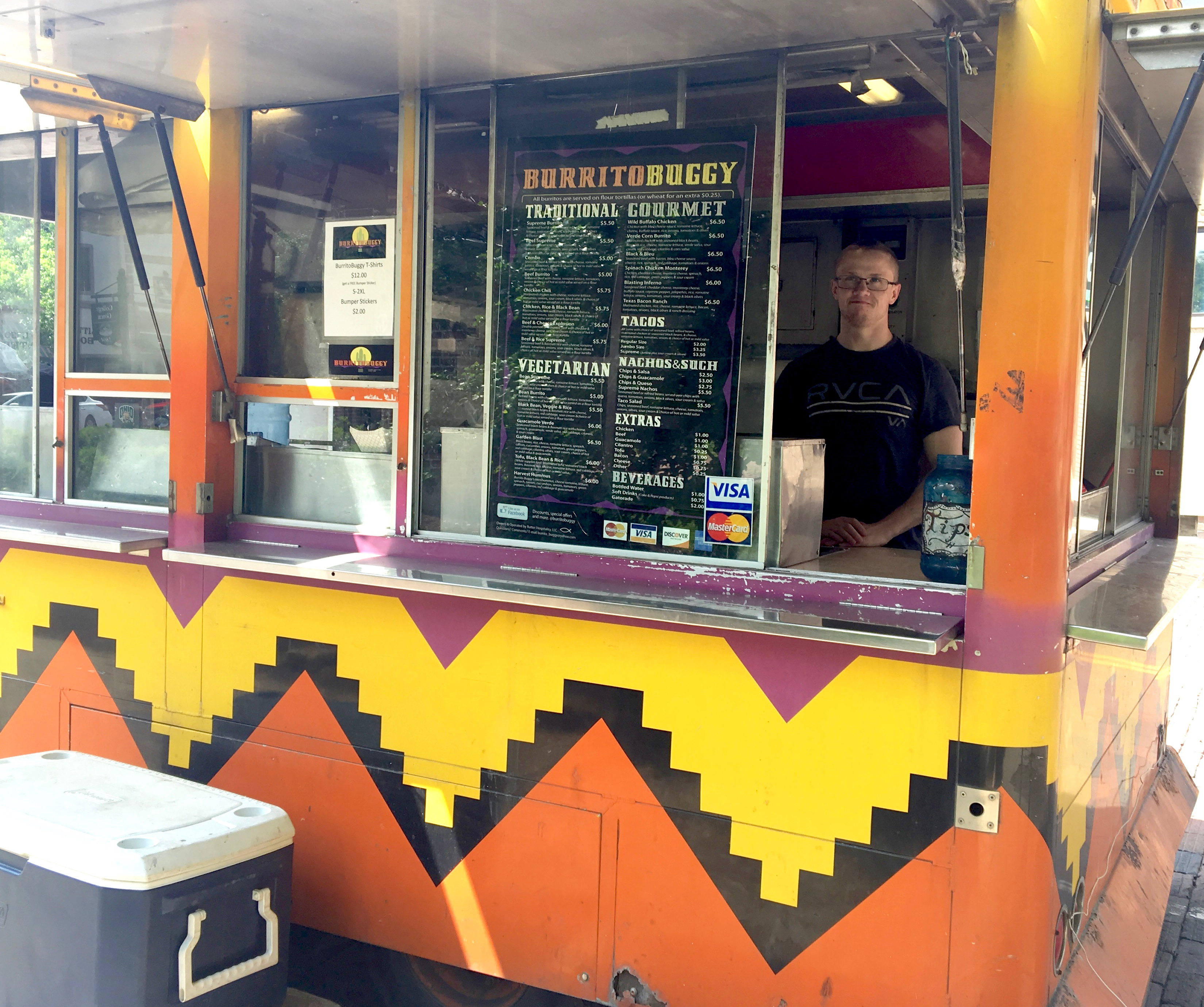
The long-standing tradition of local food is a staple in the food economy of Athens, Ohio, thanks, in part, to the 30 Mile Meal Project.
The 30 Mile Meal Project is a collaboration between the Athens County Convention & Visitors Bureau (ACCVB), the Appalachian Center for Economic Networks (ACEnet) and local food partners. ACEnet is committed to economic justice and building a healthy regional economy by giving the community the knowledge, space and tools for economic development.
The project is based on the idea that all food should be produced within a 30-mile radius of where it is served, and ingredients should be coming from less than 100 miles away. This results in the areas “super-local” food economy.
According to the Athens-based Real Food Real Local Institute, the project’s mission is to increase knowledge about the sustainability of local food providers and participating venues and events. The project has expanded to include more than 140 unique partners, including farmers, restaurants and other businesses. The project has expanded to other counties too, including, Mahoning, Shenango, Licking and Perry Counties in Ohio, and Huntington, West Virginia.
Leslie Schaller, the director of programs at ACEnet and Paige Alost, the executive director of ACCVB are responsible for bringing the project to life. According to Schaller, when the project began it acted as a “springboard” to encourage more restaurateurs and chefs to source from local farmers and food producers. It was a way to better local relationships between businesses and purveyors, while also effectively informing customers about the project.
When the “locavore” food movement began in the 1980s, ACEnet began to build a foundation for the idea. They established partnerships with local businesses and implemented product branding, like “Food We Love,” which was developed in 2000. Ten years later, the 30 Mile Meal Project was born.
Rutter Hospitality, LLC, owns two participating venues including the Burrito Buggy, a food truck that has been in business since 1984, that frequents Uptown Athens. “The Burrito Buggy has been part of the 30 Mile Meal and a food truck since before those things were even popular to say out loud,” says co-owner Sheldon Andrus.
The company has recently expanded and opened OMG! Rotisserie, in order to fill one of the few gaps in the Athens’ food scene: soul food.
“I’m scared to say it, but I think we might be the first Soul Food restaurant in Athens County and it shows that the 30 Mile Meal can be diverse,” Andrus says.
The Louisiana native says they realized they could still cook comfort food consciously and sustainably while using foods from local sources in a way the people of Athens had yet to experience. While not all of the ingredients and products used at OMG! Rotisserie are within the radius of the 30 Mile Meal Project; the restaurant strives to stack its menu with options from local purveyors.
“Being local has a price, but we’re fine with that,” Andrus says. As the business grows, OMG! Rotisserie plans to include even more menu options from local contributors such as Shagbark Seed & Mill, King Family Farm, Cantrell Honey & Candles and Snowville Creamery.
Sand Ridge Bed and Breakfast, located in Millfield, is another unique locale of the area that is highly invested in the project. Connie Davidson is the owner and cook of the B&B that is also her home. Although she plans to close after Ohio University’s graduation weekend in the spring of 2016, she has experienced the project’s merits first-hand. Davidson has been incorporating local food of the 30 Mile Meal since opening her business in 2009.
“You can buy things from Kroger, but it just seemed better to support the local farmers,” Davidson says of including local ingredients in her meals. She recognizes that the Athens is a poor county, and believes that giving money back to local farmers and businesses is beneficial for everyone. The serves a number of breakfast items that coincide with the project and says there have been a number of visitors who choose to stay at her B&B because they hear about the local ingredients she uses.
Davidson attributes the success of the project to the sense of community in the area. She suspects that much like her, people in this area want to support their neighbors while being actively aware of what they are eating.
“We vote with our forks three times a day or some of us graze all day long, so there’s just a lot of opportunities to reinvest in your neighborhood, in your community and your county when you choose more local food and really when you choose a local business over all,” Schaller says. “We have this amazing food economy where you can really year-round commit to eating local.”
SEO
Related posts
What’s Inside
- Behind the Bite (68)
- Features (124)
- In Your Neighborhood (102)
- Photo Essay (4)
- Read the Full Issue (8)
- Talking Points (48)
- The Scene (15)
- Uncategorized (3)
- Web Exclusive (5)
- What's Your Story? (21)


Find us on Social Media